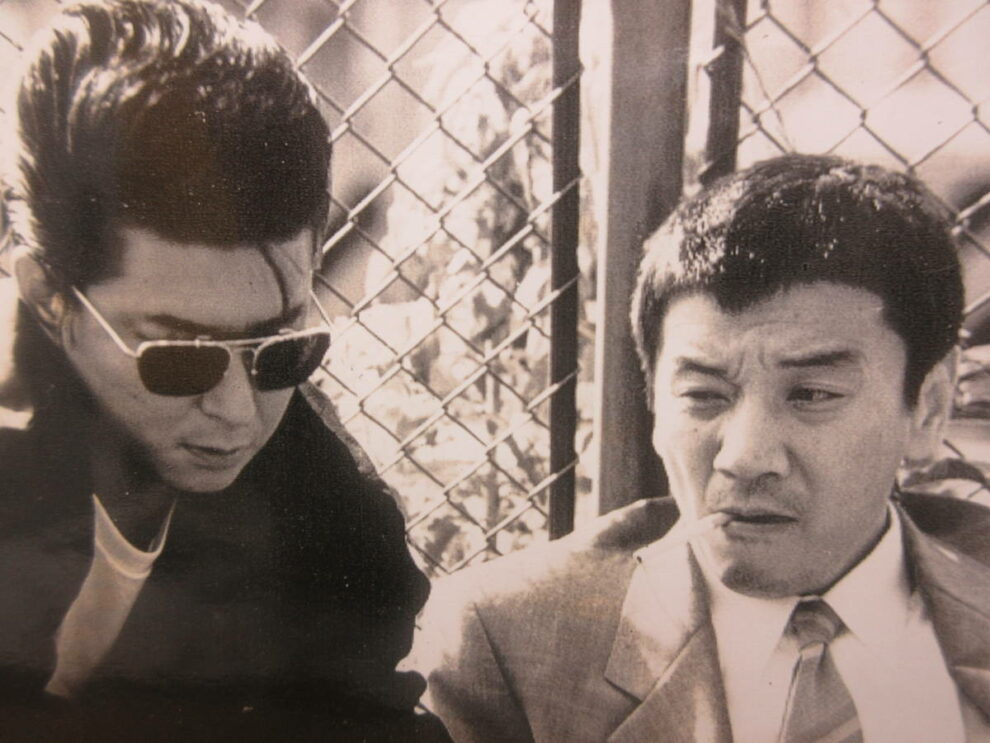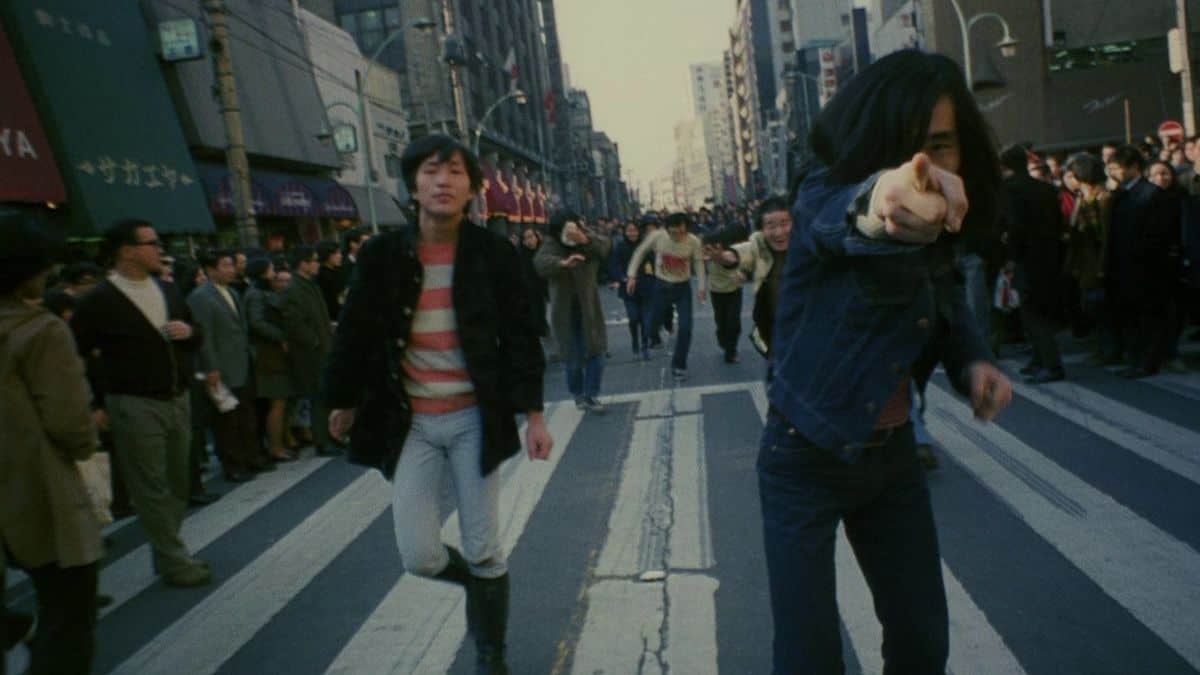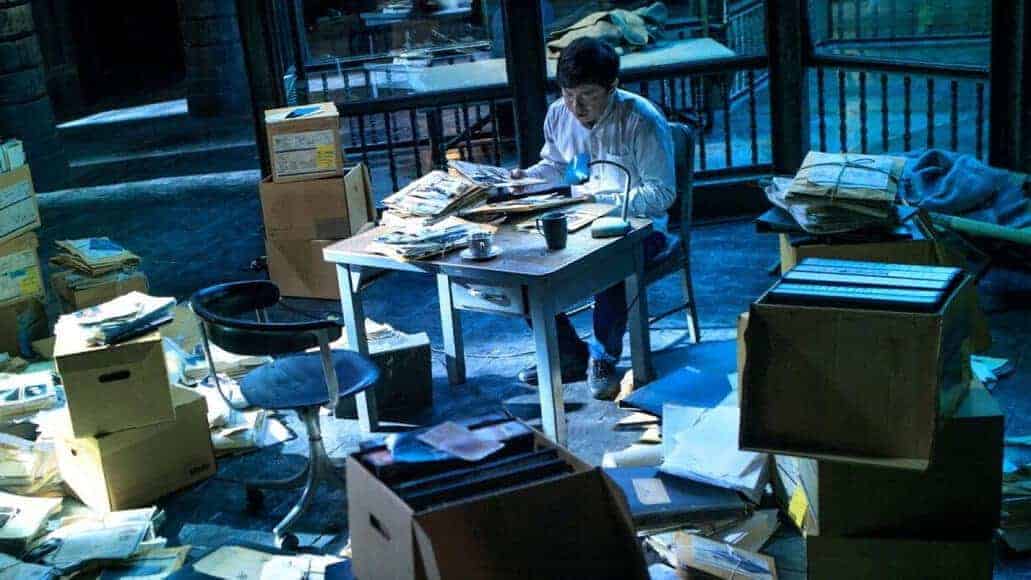In the overwhelming plethora of yakuza movies that were produced from the Japanese movie industry, we have seen movies that portray the gangsters as heroic, as losers, or as they actually are, in a rather realistically dramatic fashion that has become more prevalent during the latest years. It is very rare, however, to watch a film of the category where the protagonist is a rather cunning coward, who spends all his energy trying to avoid becoming part of the action. This is exactly what happens in “Like a Rolling Stone” however, a film that also moves into drama/erotic paths and managed to win a plethora of local awards, mostly for the direction and the main protagonist, Eiji Okuda.
Tanaka is a yakuza whose main function is to collect protection money for his boss. Considering himself second in command, as soon as he is released from prison as the story begins, in cooperation with his right hand, Hoshimoto, he “tasks” one of the lowest ranking yakuza in his group, Hoshimoto, to assassinate the boss, thinking that he will take his position. The attempt is not fully successful, but the elderly boss does end up in the hospital. However, he gives command not to Tanaka, but to Kurauchi, another underboss who does not seem to like Tanaka in particular. Furthermore, he is now tasked with a number of violent deeds, which Tanaka manages to avoid by instigating another underling of his, Kajita, into stabbing him. While all this is happening, our protagonist also manages to keep two girlfriends on the side, Ayumi, who runss a nightclub and Yoshie, a brothel keeper, while eventually he sleeps with a third one the former introduced to him, Yoko, who has become addicted to speed.
The most obvious thing is unfortunately the negative one, with the writing being mediocre to say the least, particularly in the way the story begins and progresses, but also in the way the second part becomes more of an erotic drama than a yakuza movie. At the same time, there are many issues with the pacing, with the timeline of the events being weird to say the least, not to mention that the events and the actions of the protagonists do not make that much sense.
Apart from that, however, and if you look at the individual elements of the film, there are many traits to be found here. For starters, Tanaka is a rather interesting persona, with his willingness to even have others injure him in order to avoid being violent being quite original, and actually quite funny in a mocking way for the usual presentation of yakuza on the big screen. Furthermore, the way he exploits his underlings, and the fact that he does not seem to appreciate Hoshimoto, who is loyal to him to a fault, make something that could be described as an anti anti-hero.
His relationship with the women in his life is also interesting, with him somewhat caring about them, but mostly because he can have a good time with them than anything else. One of the most memorable scenes in the movie, has him stitching himself after being stabbed by his underling for quite some time. The way this scene, which is actually repeated later on, is connected with the erotic aspect of the movie is quite intriguing, as Ayumi, the brothel-owner seems to be able to orgasm just by watching him do the deed, as she has a rather unusual fascination with wounds.
This one emerges as one of the most memorable erotic scenes in the movie, which does foster, though, a number of them, all of which are done in realistic and tasteful fashion, highlighting Tatsumi Kumashiro's experience in the pinku genre. Furthermore, the fact that, apart from a lesbian scene where he is not present, Hoshimoto's nudity is more significant than that of women emerges as another interesting approach to the whole sex aspect.
In general, Kumashiro tries to get as much from Okuda as possible, which includes both his acting and his appearance, both of which are evidently impressive. The fact that he also includes frequent narration in the movie, which does happen, though by having the protagonist speak to himself intensifies this approach, in another interesting element here. Evidently, though, Okuda is excellent in the role of the womanizer, cunning, chain-smoking, cowardly Yakuza, with his style and overall acting anchoring the movie in the best fashion. Also of note here is the performance of Sho Aikawa as Sugimoto, in a rather measured presentation of a character that functions like Tanaka's dog. Reiko Takashima as Ayumi, the wound-loving mistress steals the show among the female performances here.
Junichiro Hayashi's cinematography follows an approach that looks more arthouse than action or exploitation, as is usually the case with Yakuza movies, in a style that can be repeatedly described as artistic. The same applies to the Masaru Iizuka's editing, which results in a slow pace that also points towards an arthouse movie. The pacing issues, though, are quite evident throughout.
Even if as a whole it does not make that much sense. “Like A Rolling Stone” definitely deserves a watch for its individual elements and particularly its main character and some unique erotic scenes.
















